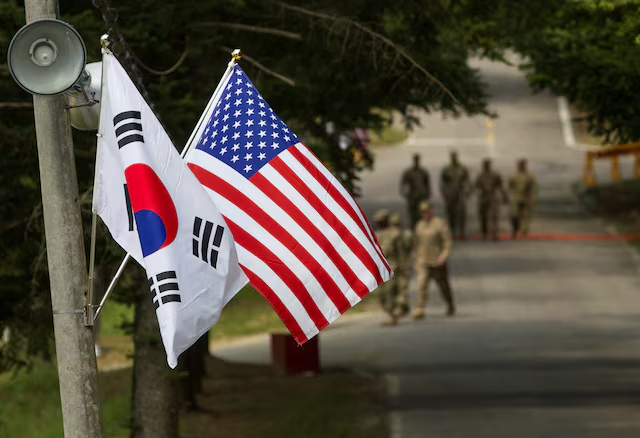
The Korean Peninsula is again a focal point of international concern as the United States and South Korea launched their annual joint military exercise, Ulchi Freedom Shield, on Monday. The large-scale drills, designed to bolster the allies’ combined defense capabilities, have drawn sharp criticism from North Korea, which perceives them as a rehearsal for invasion and a justification for its nuclear ambitions.
North Korea Decries Drills as ‘Provocative’
Hours before the exercises commenced, North Korea’s Foreign Ministry issued a strongly worded statement condemning the drills as “provocative war drills for aggression.” The statement reiterated Pyongyang’s longstanding stance that such exercises are a direct threat to its security and necessitate the development of its nuclear deterrent. The ministry stressed the importance of maintaining a “balance of power” to prevent war, highlighting the North’s reliance on its nuclear arsenal as a crucial safeguard.
Allies Emphasize the Defensive Nature of Exercises
The United States and South Korea maintain that the Ulchi Freedom Shield exercises are purely defensive. They argue that the drills are necessary to enhance their readiness in the face of North Korea’s evolving military capabilities, including its expanding missile program, GPS jamming technology, and cyber warfare potential. The allies have been steadily expanding and upgrading their training programs in recent years to adapt to the growing complexities of the security environment on the Korean Peninsula.
Focus on Readiness and Real-World Lessons
US Participation and Strategic Assets
While the U.S. military has not disclosed the exact number of American troops involved in the exercises, their participation underscores the United States’ commitment to the defense of South Korea. It remains unclear whether the drills will include the deployment of U.S. strategic assets, such as long-range bombers, submarines, or aircraft carrier strike groups, which have been increasingly present in the region in recent months for joint training with South Korean and Japanese forces.
Concerns Over North Korean Response
The Ulchi Freedom Shield exercises have historically elicited a hostile response from North Korea, which has often used them as an opportunity to showcase its growing military prowess and issue bellicose threats against Washington and Seoul. The recent display of hundreds of nuclear-capable missile launchers in Pyongyang, overseen by North Korean leader Kim Jong Un, has further fueled anxieties about the potential for escalation.
Kim Jong Un’s Nuclear Ambitions and Regional Stability
Kim Jong Un’s relentless pursuit of nuclear weapons and his stated intention to deploy them along the border with South Korea has raised alarm bells across the international community. Analysts suggest that Kim may be seeking to leverage the current geopolitical climate, particularly in a U.S. election year, to advance his long-term objectives of securing international recognition as a nuclear power and extracting economic and security concessions from a position of strength.
Historical Precedents and Escalation Risks
Last year’s Ulchi Freedom Shield exercises prompted North Korea to conduct a series of ballistic missile tests, which it claimed simulated “scorched earth” nuclear strikes on South Korean targets. The recent escalation in tensions, marked by the North’s launching of propaganda-laden balloons towards the South, further underscores the fragility of the situation and the potential for miscalculation.
The Path Forward
As the Ulchi Freedom Shield exercises continue, the international community remains on edge, hoping for a measured response from North Korea and a renewed commitment to diplomatic efforts aimed at de-escalating tensions and achieving lasting peace on the Korean Peninsula. The exercises are a stark reminder of the region’s complex security challenges and the urgent need for dialogue and diplomacy to avert a potentially catastrophic conflict.
